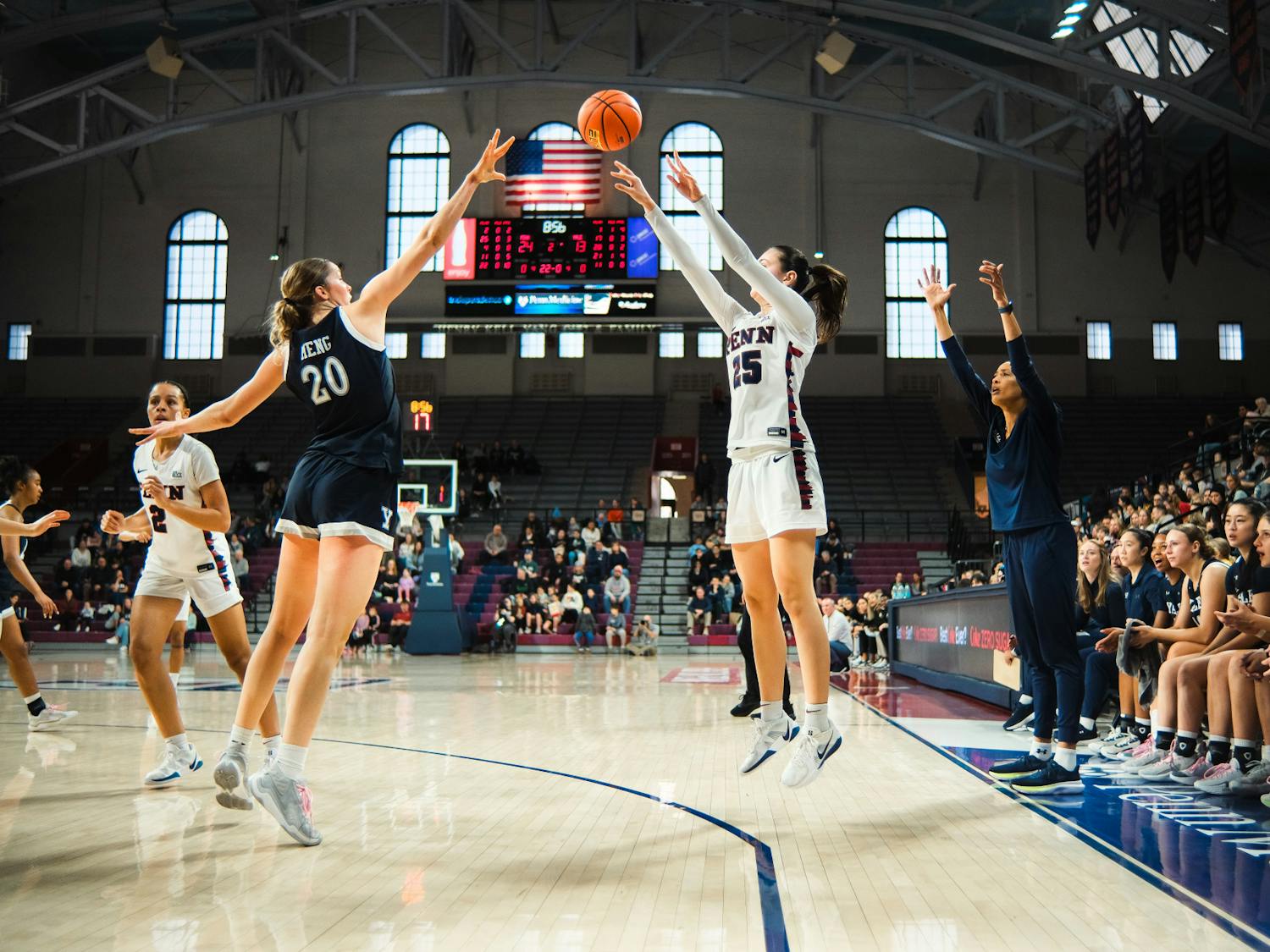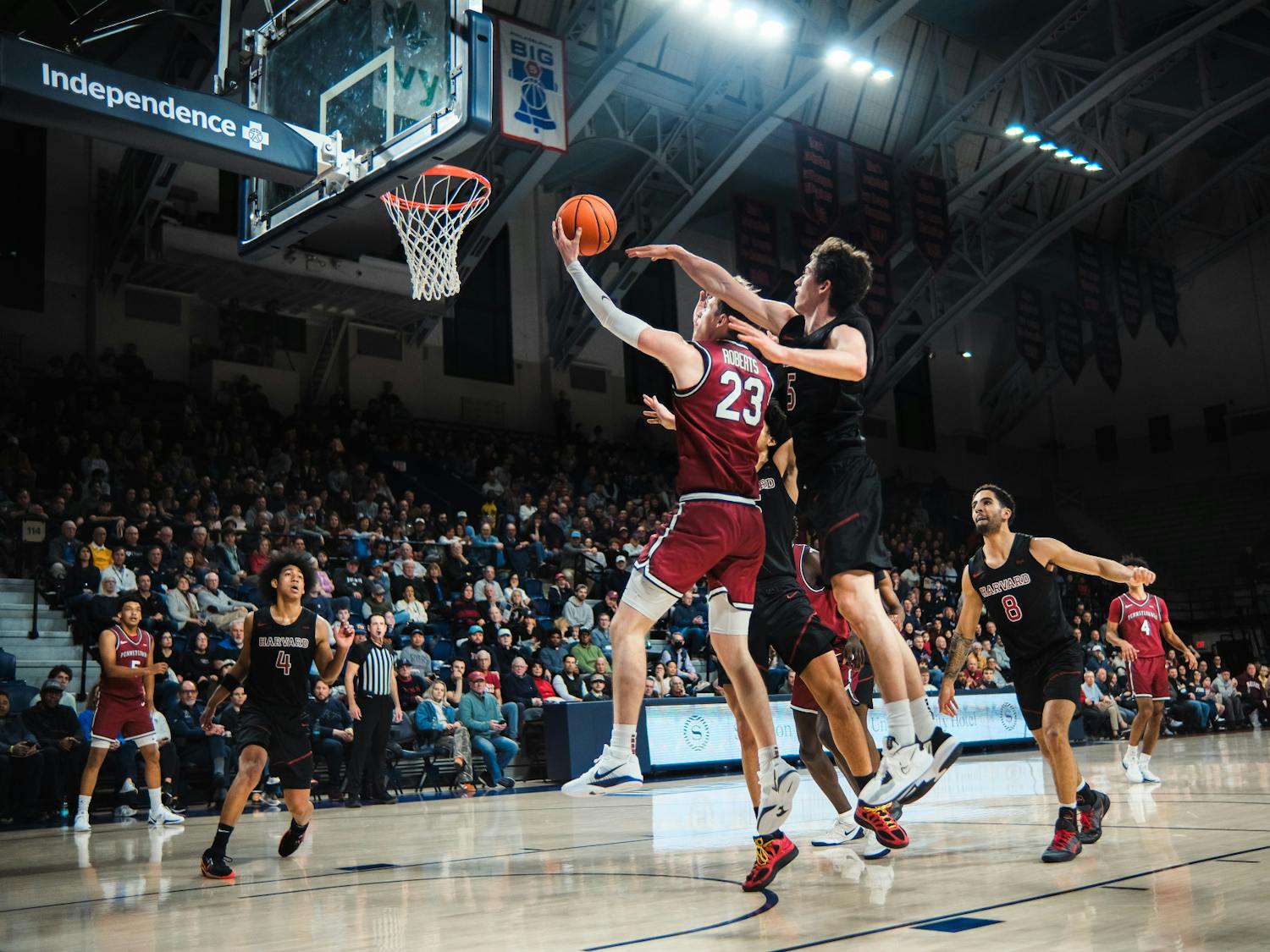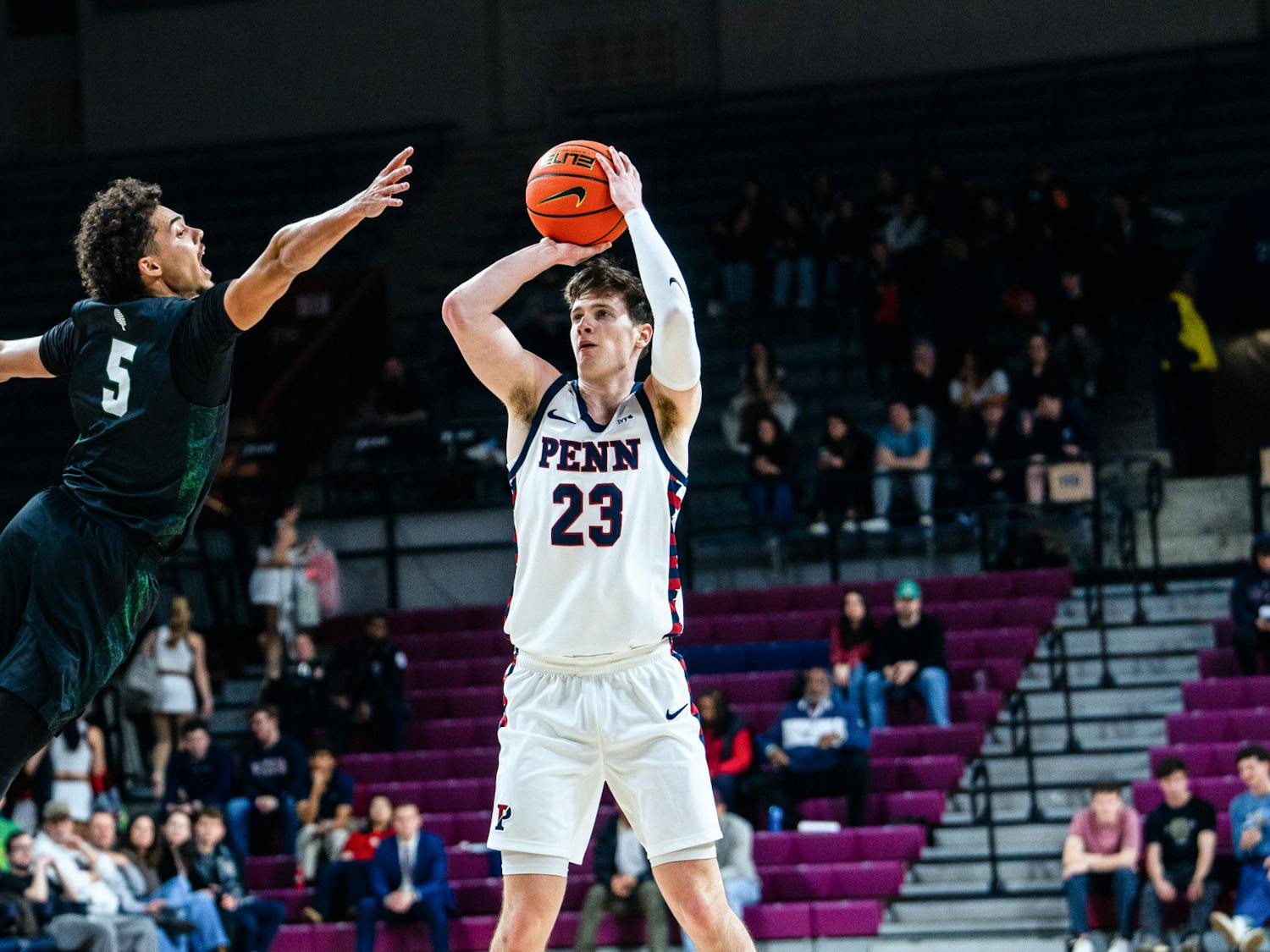From the moment he opened The Daily Pennsylvanian upon visiting Penn's campus for the first time, Ken Rosenthal knew he had found the launching pad for his budding career in sports journalism.
After four years at the DP, Rosenthal graduated Penn with an English degree in 1984 and embarked on a journey that eventually led him to his current posts as a columnist for Foxsports.com and lead field reporter for MLB on Fox.
Yesterday, the DP took some time to catch up with the former Sporting News writer and current voting member of the Baseball Hall of Fame.
Daily Pennsylvanian: What has been the most exciting moment of your professional career?
Ken Rosenthal: It would be covering [Cal] Ripken's record-breaking game in 1995 as a columnist for The Baltimore Sun. This was at a time when there was no internet, there were a number of out-of-town writers there, and I felt a lot of pressure because [everyone was seeing my work]. . I wanted to write really well.
As it turned out, the story wrote itself. It was right there in front of me. I couldn't have screwed it up -- not even I could have screwed it up (laughs). That moment was such a special moment for baseball and for Baltimore - actually, for the whole country.
And the best thing was that I did what I wanted to do - I wrote and it was fine.
A lot of really cool things have happened since - being on TV and doing the World Series was pretty cool - but that will stay with me. That will always be number one.
DP: Do you still get a thrill from interacting with world-class professional athletes?
KR: Absolutely not. That's the least of it. I mean, they're people - some of them are good people, some of them are not-so-great people. That's not why I got into it. If I would meet a rock star that I was a fan of, that would give me a thrill. But with baseball players, you lose [the novelty] really quick. .
KR: I'm sorry, but I had to break a story: Gabe Gross has been traded to the Tampa Bay Rays.
DP: Sounds like a real thriller.
KR: Well you take what you can get, my man (laughs).
DP: Who has been your worst interview?
KR: Rasheed Wallace. That dude! I once wrote this book with people giving reflections on Dean Smith - and everybody loves Dean Smith, right? I went to Washington and was talking to Rasheed Wallace - he knew I was coming - and he said nothing. He was like, "uuuuh." He was barely mumbling.
DP: Who has been your best interview?
KR: There are a lot of guys. Tony Gwynn was always great. With current players, Jeff Francoeur is really good.
DP: Who's your favorite player to watch in baseball today?
KR: As a fan? Let me think for a second. [José] Reyes - he would be in the discussion.
I'll tell you what. I love watching Manny [Ramirez] play. I think Manny would be the guy. I love watching him hit. Watching him hit is amazing.
DP: You're currently a voting member of the Baseball Hall of Fame. How does the recent steroid scandal affect the way you will vote?
KR: I do not take an innocent-until-proven-guilty approach. The reason is that the Hall of Fame vote should not be equivalent to a court of law. Basically, as voters we are instructed .to consider character, integrity and sportsmanship.
That gives us the opportunity to have a wide, subjective view. I will exercise that. Now, is it fair? Do we know exactly the whole truth? No, we're never going to know the whole truth. But all you can do is vote on what you know or believe.
I will not vote for any of these guys on the first ballot - any player from this era, with certain exceptions - but for the most part, none of them, because they're all members of the union [that prevented drug testing reform].
DP: What did you study while you were at Penn?
KR: I mostly studied at the DP (laughs). I wasn't much of a student. The DP was my major.
[Sportswriting] was my passion and it was something that I thought I wanted to do. Really, that's why I came to the school. Even as a high-school senior, I came and I saw a [copy of the DP] . and I said, "Wow, this is really good."
DP: What was an average day like in the life of Ken Rosenthal at Penn?
KR: For the most part - for sophomore and junior year - I was at the DP most days from four or five o' clock until three in the morning.
I only scheduled classes after noon, and sometimes I wouldn't make those. My friends were at the DP. It was my world. Even to this day, my best friends in life are [my DP friends] . I met even my wife through my co-editor at the DP.
DP: What was the beginning of your DP career like?
KR: My first article was about the sailing team - I know that. I may have had women's basketball as a freshman and women's lacrosse, which were pretty big beats back then
DP: Did any of your DP friends become journalists?
KR: No, none of them are. One, I think, works for the CIA, but I'm not sure (laughs). Another guy is a big executive at Prudential. Another one is president of a steel company.
[One friend actually writes] for The Wall Street Journal, so he's in journalism. But for the most part, none of those guys went into it.
DP: What did you do after you left the comforts of West Philly?
KR: I ended up in York, Pa. with a buddy of mine who was a year ahead of me at the DP. He got me there. I applied to something like 75 papers and all of them said no. This one paper said yes, mostly because my friend was there.
[He] told them, "We should hire this guy." They actually wanted me to come before I even graduated. [My friend] told them, "He's not going before he graduates. He's going to graduate -- like everybody else." But that's how I got the job - that's kind of how it happened.
If I'd had a clue, I might have been more scared. But I was young, not scared, and I didn't have a clue.
DP: What does it take to make it in the sports journalism business?
KR: When I'm talking to young people and they ask, "How did you do it?" -- it's different than when I came in. First of all, there was no internet when I came in and no talk radio, for the most part. All of this stuff was either just starting or had not started yet.
You worked for a small newspaper and you worked your way up. It was pretty simple. Now there are other ways to do it, but I'm not so familiar with what those ways are.
DP: What was the most memorable event you covered at Penn?
KR: The football team -- my sophomore year, they won the Ivy League title for the first time in ages. [The fans] took the goalposts and they threw them in the river. The game when they beat Harvard for the Ivy title was one of the great controversial finishes of all time. There was a roughing the kicker [penalty on Harvard, during Penn's game-winning field goal attempt. The kicker] missed the first and made the second.
DP: Was there any fallout after that incident?
KR: You can write this. The following summer, I went to Harvard to do a year-after story. I drove my orange Ford Renatta six hours and the coach blew me off. Joe Restic.
DP: When did you know that this was the career you wanted?
KR: Working at the DP, I knew that I wanted to be a sports journalist -- even though I had no idea what exactly that entailed (which is probably a good thing). But I didn't really understand the business.
I remember my dad, who is an attorney, said to me when I was looking for a job, "Hey, I don't know how people make money in that business and I don't know how you're going to enjoy it, but you're not coming home - just know that."








